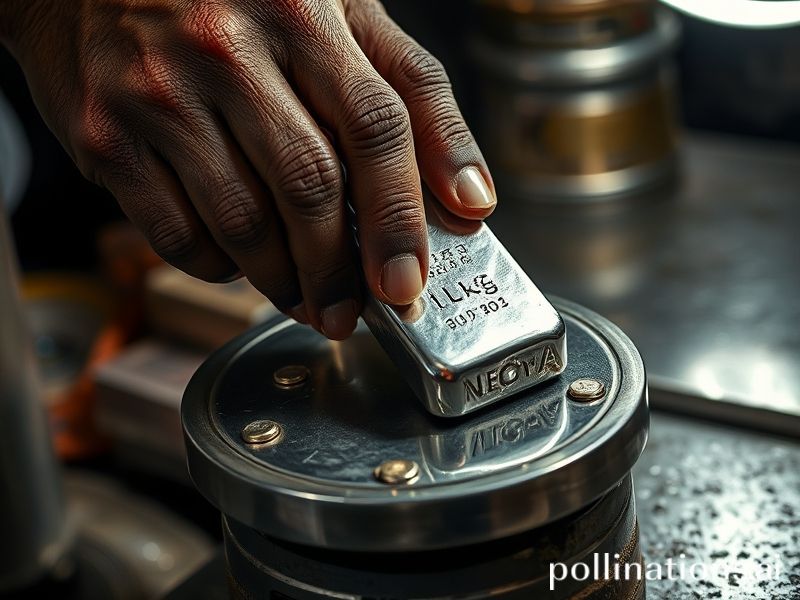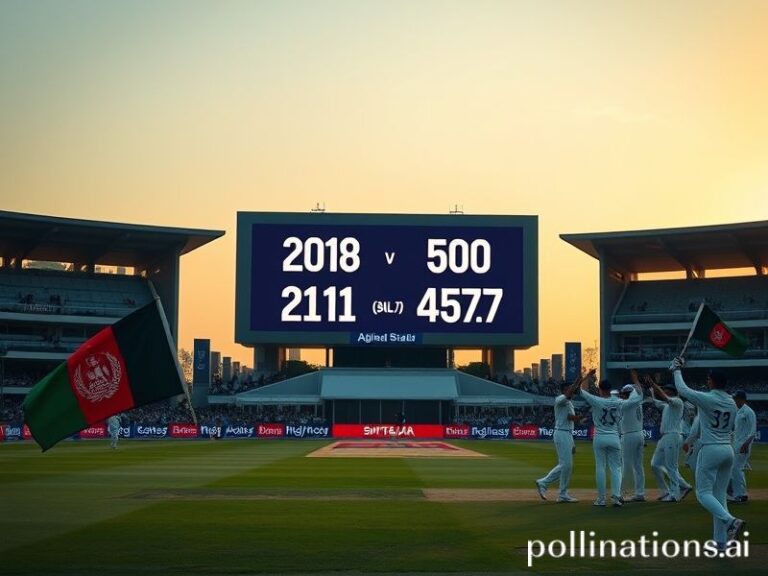Silver Price Shivers: How a 24-Dollar Rock Becomes the World’s Favorite Anxiety Mirror
Silver: The World’s Shiniest Political Barometer
(Or, How a Soft Metal Keeps Telling Us We’re Doomed)
By the time you finish this sentence, silver will have changed price three times—twice in London, once in Mumbai, and, for all we know, once in whatever backroom the People’s Bank of China uses to practice alchemy. The spot price, that hypnotic little number flickering on trading screens from Zurich to Zhengzhou, currently hovers around twenty-four dollars per troy ounce, give or take the cost of a decent espresso in Tokyo. Which is fitting: both are bitter, over-caffeinated, and absolutely essential to the functioning of late-stage capitalism.
Silver has always been gold’s moodier sibling—less glamorous, more prone to industrial tantrums. Roughly half of global demand comes not from nervous savers stacking coins in Idaho bunkers, but from factory bosses who need it for solar panels, iPhones, and the occasional missile guidance system. (Nothing says “green transition” quite like blowing up a chunk of the planet with ethically sourced electronics.) So when the price spikes, eco-visionaries and arms dealers alike scramble to their spreadsheets, united in the sacred human pursuit of margin.
Take Mexico, the world’s largest producer, where Fresnillo’s mines dig up more silver than the conquistadors ever dreamed of stealing. Every peso uptick in the price is celebrated in boardrooms, then promptly hedged away because, as one executive told me over tequila in Mexico City, “We’re optimists, but we’re not stupid.” Meanwhile, the same rally pushes up the cost of photovoltaic panels in Gujarat, nudging India’s solar dreams a little further into the smoggy distance. In a cosmic joke that would make Kafka smirk, the metal that promises clean energy is itself mined by diesel-spewing trucks.
Across the Pacific, the United States treats silver as both investment and ideology. Red-state preppers hoard one-ounce rounds stamped with eagles and snarling wolves, convinced that when the fiat apocalypse arrives they’ll barter for canned beans using discs slightly more practical than bottle caps. Meanwhile, blue-state ESG funds pour millions into “green silver” ETFs, blissfully ignoring the child labor reports filtering out of Bolivian pits. The market’s genius is that it can monetize paranoia and virtue at the same time.
China, ever the pragmatist, has spent the last decade vacuuming up physical silver along with every other commodity that can be rehypothecated into a shadow-banking product. Shanghai Futures Exchange warehouses now hold enough of the white metal to plate every rooftop in Beijing, a fact not lost on Washington, where lawmakers mutter about “critical mineral security” between fundraising calls. The irony, of course, is that half of Congress couldn’t tell bullion from bullshit without a lobbyist whispering in their ear.
Then there’s Turkey, where the lira’s circus-act volatility has turned grandmothers into day-traders of family silverware. In Istanbul’s Grand Bazaar, shopkeepers weigh forks and heirloom tea sets, melt them down, and sell the ingots to pay for electricity bills. It’s a poignant reminder that when currencies collapse, the same metal that once adorned sultans ends up as ballast for central banks trying to postpone the inevitable.
And yet, despite all the geopolitical theater, silver remains reassuringly indifferent. It doesn’t care about your politics, your carbon credits, or your podcast on monetary collapse. It simply sits in vaults and circuit boards, gleaming with the cold neutrality of a mirror. Every price tick is a small, metallic laugh at human pretension—a reminder that we dig holes, refine rocks, and then pretend the resulting shiny rectangles confer meaning.
So next time you see silver quoted at twenty-four, or forty, or twelve, remember: it’s not the metal that’s volatile. It’s everything else. Silver just reflects our collective neuroses in 99.9% pure form—polished, portable, and always ready for the next civilization to pawn its future.







